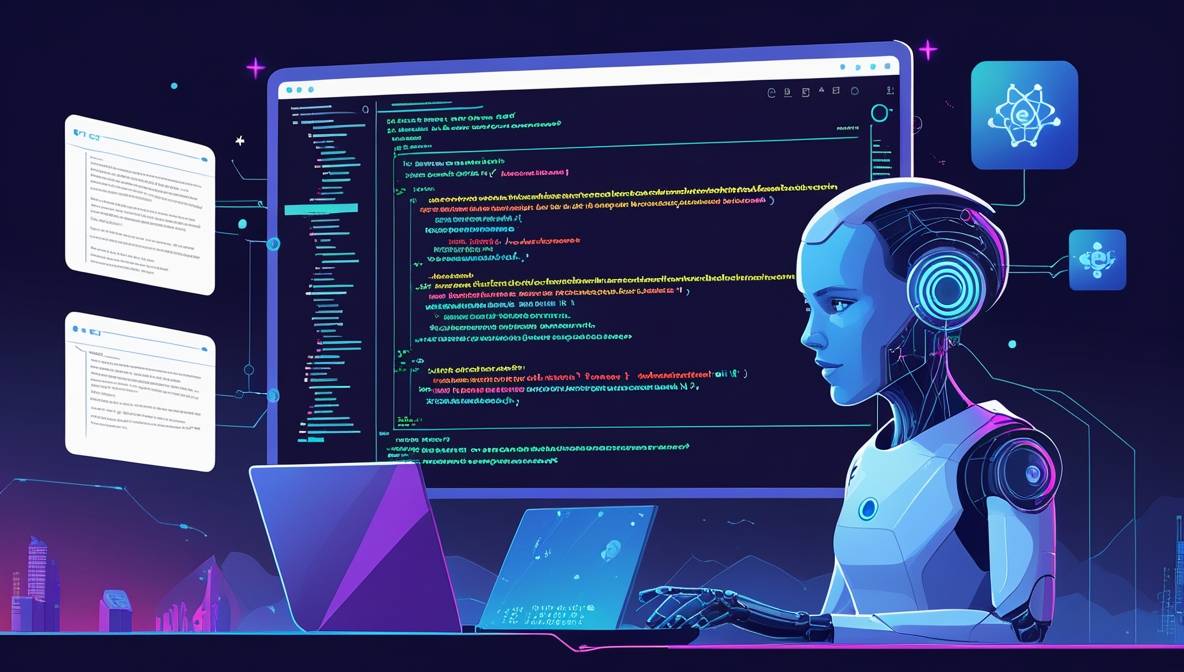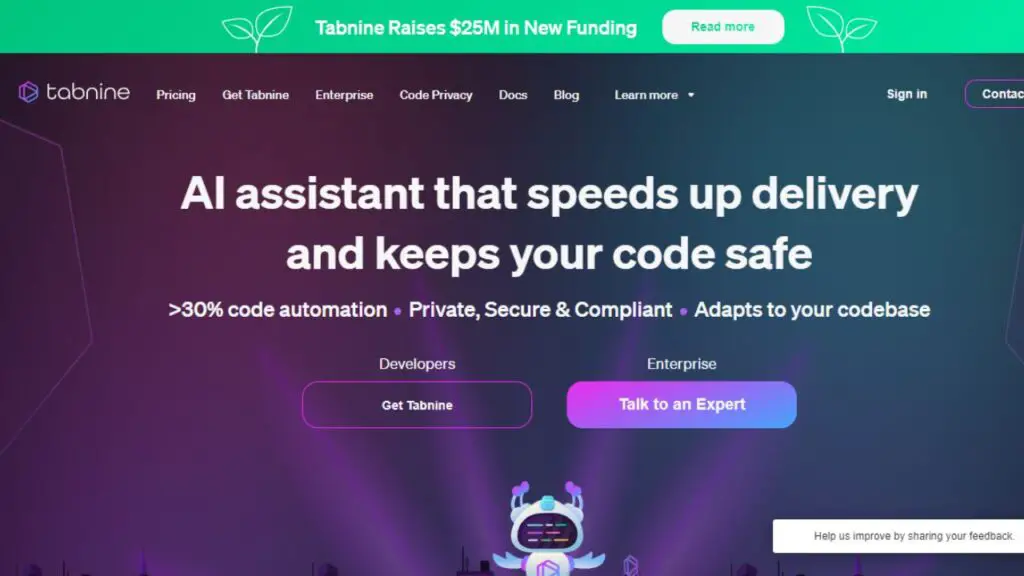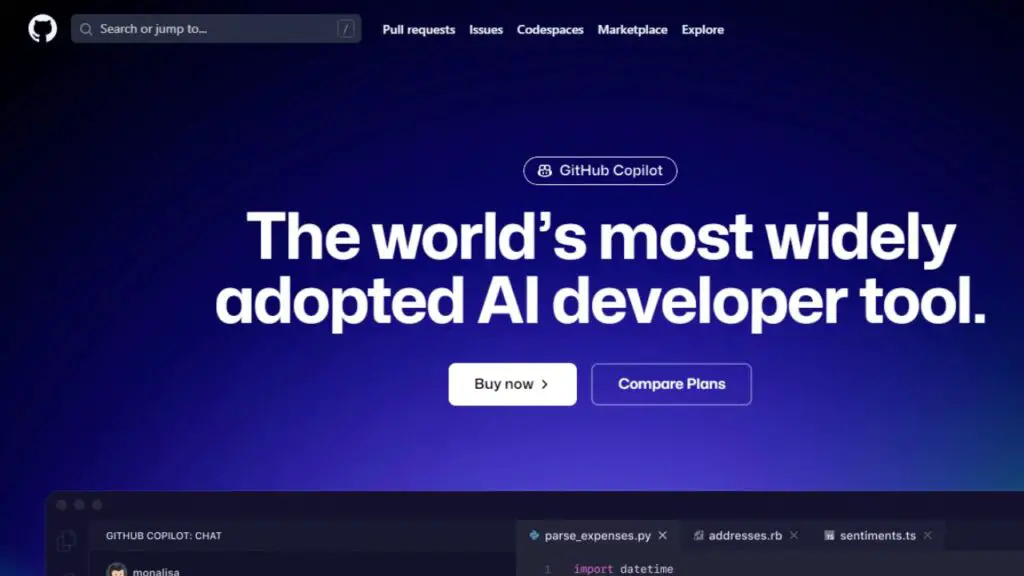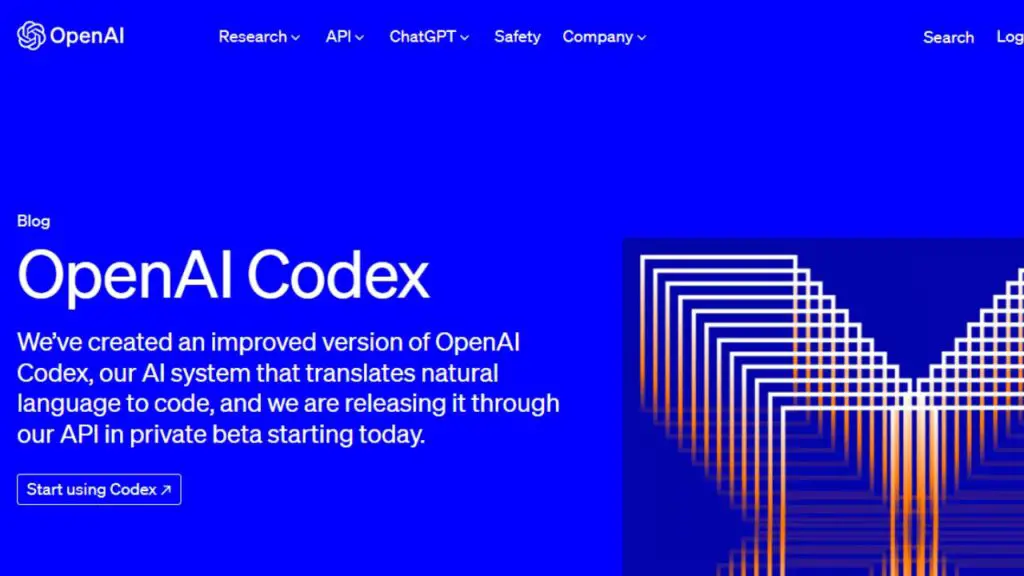Top ChatGPT alternatives for coding and development have become essential as developers seek specialized tools to streamline workflows. While ChatGPT excels in generating human-like text, its limitations in understanding complex code structures and syntax accuracy make alternatives like OpenAI Codex, Tabnine, and Kite indispensable for technical tasks.
This guide explores these tools, their features, and how they elevate coding efficiency.
What is ChatGPT?
ChatGPT is a language version evolved with the aid of OpenAI that uses deep studying techniques to generate human-like textual content responses. It is designed to have conversations with users and provide relevant and coherent responses.
However, ChatGPT has certain limitations that can hinder its effectiveness in coding and development tasks. For example, it may struggle with understanding complex code structures and providing accurate code suggestions.
Therefore, it is important to explore alternative tools that are specifically designed for coding and development purposes.

Limitations of ChatGPT
ChatGPT, while impressive, has some limitations that may hinder its effectiveness for coding and development tasks. One major limitation is that it lacks the ability to understand context and maintain a consistent understanding throughout a conversation. This can lead to inaccurate or incomplete responses, making it challenging to rely on for complex coding queries.
Additionally, ChatGPT’s responses can be verbose and may require additional effort to extract the desired information. OpenAI Codex, Tabnine, and Kite are some of the top alternatives that address these limitations and offer unique features to enhance the coding experience.
Importance of ChatGPT Alternatives
ChatGPT has revolutionized the way developers interact with code, providing a natural language interface for coding and development tasks. However, it is important to explore alternative tools that complement ChatGPT and address its limitations. These options offer precise features and talents that enhance the coding revel in, enhance productivity, and provide extra support for builders.
By thinking about those options, developers can discover the proper gear that excellent in shape their coding desires and maximize their performance in software development.
Why Look Beyond ChatGPT?
While ChatGPT excels in generating human-like text, it struggles with:
- Context Retention: Difficulty maintaining context in extended coding sessions.
- Code-Specific Nuances: Limited understanding of programming syntax and best practices.
- Real-Time Collaboration: Lack of integration with popular IDEs and version control systems.
Specialized AI coding tools address these gaps, providing tailored solutions for developers.
1. GitHub Copilot
Description: Developed by GitHub and OpenAI, GitHub Copilot acts as an AI pair programmer, offering real-time code suggestions across languages like Python, JavaScript, and Ruby. Integrated directly into editors like VS Code and JetBrains, it accelerates development by generating entire functions or documentation.
Strengths:
- Multi-Language Support: Works with Python, JavaScript, Go, and more.
- IDE Integration: Seamlessly embedded in VS Code, Neovim, and JetBrains.
- Contextual Awareness: Analyzes existing code to suggest relevant snippets.
Use Cases:
- Automating boilerplate code generation.
- Rapid prototyping and debugging.
For WordPress developers, tools like GitHub Copilot align with optimizing themes and plugins. Explore fastest free WordPress themes to pair with AI-driven development.
2. Tabnine

Description: Tabnine leverages machine learning to deliver intelligent code completions. Supporting over 30 languages and editors like VS Code and IntelliJ, it learns from your codebase to predict entire lines or blocks.
Strengths:
- Full-Code Suggestions: Completes functions, classes, and conditional statements.
- Enterprise Security: Offers private server hosting for code privacy.
- Cross-Platform Compatibility: Works offline and across IDEs.
Integration:
- VS Code, IntelliJ, Sublime Text, and others.
Enhance your workflow further by integrating Tabnine with WordPress cache plugins for faster performance.
3. Kite

Description: Kite specializes in Python and JavaScript, providing AI-powered completions and documentation. Its offline functionality ensures uninterrupted coding, even without internet access.
Strengths:
- Documentation Pop-Ups: Displays function details and examples on hover.
- Multi-Language Focus: Strong support for Python and JS ecosystems.
- IDE Compatibility: Integrates with PyCharm, VS Code, and Sublime Text.
Use Cases:
- Learning new libraries or frameworks.
- Reducing errors in complex algorithms.
Pair Kite with SEO optimization techniques to ensure your code aligns with performance best practices.
4. OpenAI Codex

Description: Powering GitHub Copilot, OpenAI Codex translates natural language into functional code. Accessible via API, it assists in writing tests, debugging, and explaining code logic.
Strengths:
- Natural Language Processing: Converts plain English to code.
- Multi-Language Proficiency: Supports Python, Ruby, Swift, and more.
- Scalability: Ideal for both small scripts and large applications.
Use Cases:
- Generating code from user stories.
- Automating repetitive coding tasks.
For content-heavy projects, combine Codex with AI content generators.
5. IntelliCode
Description: Microsoft’s IntelliCode enhances VS Code and Visual Studio with AI-driven completions. By analyzing millions of repositories, it prioritizes the most relevant suggestions based on community patterns.
Strengths:
- Contextual Ranking: Surfaces common patterns used by developers.
- Error Detection: Flags potential bugs during coding.
- Personalization: Adapts to individual coding habits.
Integration:
- Built into Microsoft’s developer ecosystem.
Optimize your projects further using local SEO strategies for broader reach.
6. Sourcery
Description: Sourcery refactors Python code in real time, suggesting improvements for readability and efficiency. Integrated with VS Code and PyCharm, it transforms messy code into clean, maintainable scripts.
Strengths:
- Instant Refactoring: Simplifies complex loops and conditionals.
- PEP-8 Compliance: Ensures adherence to Python style guidelines.
- Inline Suggestions: Offers fixes without leaving the editor.
Use Cases:
- Legacy code modernization.
- Team collaboration with standardized practices.
For content creators, pair Sourcery with email marketing tools to automate outreach.
7. Replit
Description: Replit combines a cloud-based IDE with AI assistance, enabling coding from any device. Its Ghostwriter feature suggests completions and debugs code in real time.
Strengths:
- Collaboration: Real-time multiplayer editing.
- AI-Powered Debugging: Identifies errors and suggests fixes.
- Deployment Tools: Host and deploy projects directly from the IDE.
Use Cases:
- Remote team collaboration.
- Teaching and learning programming.
Explore how to create a WordPress site to integrate Replit’s capabilities.
Comparison Table: Top AI Coding Tools
| Tool | Key Features | Supported Languages | IDE Integration |
|---|---|---|---|
| GitHub Copilot | Code generation, multi-language | Python, JS, Ruby, Go | VS Code, JetBrains |
| Tabnine | Full-line completions, offline mode | 30+ languages | VS Code, IntelliJ |
| Kite | Documentation lookup, Python focus | Python, JavaScript | PyCharm, VS Code |
| OpenAI Codex | Natural language to code | Python, Ruby, Swift | API-based |
| IntelliCode | Contextual ranking, error detection | C#, Java, Python | Visual Studio, VS Code |
Choosing the Right Tool
Consider these factors when selecting an AI coding assistant:
- Language Support: Ensure compatibility with your primary stack.
- IDE Integration: Prioritize tools that embed into your existing workflow.
- Collaboration Needs: Cloud-based tools like Replit excel for team projects.
- Security: Enterprise teams may prefer Tabnine’s private servers.
For monetization strategies, review AdSense arbitrage tips to fund development projects.
The Future of AI in Coding
AI-powered tools will increasingly automate repetitive tasks, allowing developers to focus on innovation. Expect advancements in:
- Contextual Understanding: Tools that grasp project-specific nuances.
- Cross-Platform Syncing: Unified AI assistants across IDEs and repositories.
- Ethical Coding: AI that suggests secure, compliant code practices.
Stay updated with Google’s AI developments to align with industry trends.
Conclusion
Choosing the right alternative for your coding needs
When it comes to choosing the right alternative to ChatGPT for your coding needs, it’s important to consider various factors. First, evaluate the features offered by each alternative, such as code completions, syntax checking, and error detection.
Additionally, consider the integration of the alternative with your preferred code editor and programming language. User reviews and community support can also provide valuable insights. Lastly, think about your specific coding requirements and how well the alternative aligns with them. By carefully considering these factors, you can find the perfect ChatGPT alternative that enhances your coding experience and boosts productivity.
Considerations when evaluating ChatGPT alternatives
When evaluating ChatGPT alternatives, there are several factors to consider. Firstly, it is important to assess the accuracy and reliability of the alternative in providing code suggestions and completions. Additionally, integration with popular code editors and compatibility with different programming languages should be taken into account. User feedback and community support are also valuable indicators of the alternative’s effectiveness.
Lastly, pricing and licensing models should be evaluated to ensure they align with your budget and usage requirements. By carefully considering those elements, developers could make an informed choice when selecting the right opportunity for his or her coding desires.
The future of AI-powered coding tools
As era keeps to develop, the future of AI-powered coding equipment looks promising. Artificial intelligence has the potential to revolutionize the way developers write code, improving productivity and accuracy.
AI-powered tools like ChatGPT alternatives, such as OpenAI Codex, Tabnine, and Kite, are already making significant strides in assisting developers with code completion, error detection, and even suggesting code snippets. These tools are constantly evolving and adapting to fulfill the converting wishes of builders, and we will count on to look even greater modern capabilities and enhancements within the future.
With the increasing adoption of AI within the coding community, the future of AI-powered coding equipment holds remarkable capability for enhancing the coding experience and permitting builders to write better code faster.










